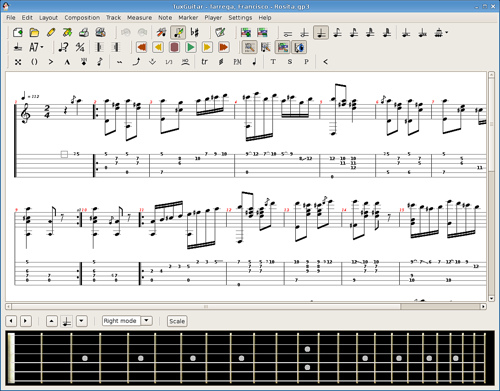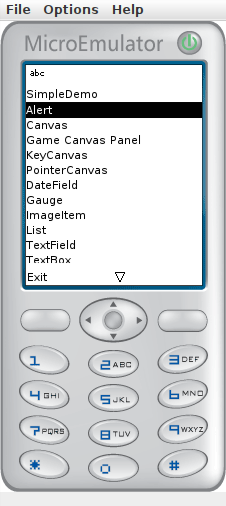|
Oracle V. Google
'' LLC v. Oracle America, Inc.'', 593 U.S. 1 (2021), was a landmark decision of the Supreme Court of the United States related to the nature of computer code and copyright law. The dispute centered on the use of parts of the Java programming language's application programming interfaces (APIs) and about 11,000 lines of source code, which are owned by Oracle (through subsidiary, Oracle America, Inc., originating from Sun Microsystems), within early versions of the Android operating system by Google. Google has since transitioned Android to a copyright-unburdened engine without the source code, and has admitted to using the APIs but claimed this was within fair use. Oracle initiated the suit arguing that the APIs were copyrightable, seeking in damages from Google's sales and licensing of the earlier infringing versions of Android. While two District Court-level jury trials found in favor of Google, the Federal Circuit court reversed both decisions, holding that APIs are copyrightabl ... [...More Info...] [...Related Items...] OR: [Wikipedia] [Google] [Baidu] |
Lawyers' Edition
The ''United States Supreme Court Reports, Lawyers' Edition'', or ''Lawyers' Edition'' (L. Ed. and L. Ed. 2d in case citations), is an unofficial law report, reporter of Supreme Court of the United States Judicial opinion, opinions. The ''Lawyers' Edition'' was established by the Lawyers Cooperative Publishing Company of Rochester, New York in 1882, and features coverage of Supreme Court decisions going back to 1790. The first ''Lawyers' Edition'' series corresponds to the official ''United States Reports'' from United States Reports, volume 1, volume 1 to List of United States Supreme Court cases, volume 351, volume 351, whereas the second series contains cases starting from the official reporter List of United States Supreme Court cases, volume 352, volume 352. It is currently published by LexisNexis. The ''Lawyers' Edition'' differs from the official reporter in that the editors write headnotes and case summaries, as well as provide annotations to some cases, and decisions are ... [...More Info...] [...Related Items...] OR: [Wikipedia] [Google] [Baidu] |
Java (software Platform)
Java is a set of computer software and specifications that provides a software platform for developing application software and deploying it in a cross-platform computing environment. Java is used in a wide variety of computing platforms from embedded devices and mobile phones to enterprise servers and supercomputers. Java applets, which are less common than standalone Java applications, were commonly run in secure, Sandbox (computer security), sandboxed environments to provide many features of native applications through being embedded in HTML pages. Writing in the Java (programming language), Java programming language is the primary way to produce code that will be deployed as Java byte code, byte code in a Java virtual machine (JVM); byte code compilers are also available for other languages, including Ada (programming language), Ada, JavaScript, Kotlin (programming language), Kotlin (Google's preferred Android language), Python (programming language), Python, and Ruby (p ... [...More Info...] [...Related Items...] OR: [Wikipedia] [Google] [Baidu] |
GNU General Public License
The GNU General Public Licenses (GNU GPL or simply GPL) are a series of widely used free software licenses, or ''copyleft'' licenses, that guarantee end users the freedom to run, study, share, or modify the software. The GPL was the first copyleft license available for general use. It was originally written by Richard Stallman, the founder of the Free Software Foundation (FSF), for the GNU Project. The license grants the recipients of a computer program the rights of the Free Software Definition. The licenses in the GPL series are all copyleft licenses, which means that any derivative work must be distributed under the same or equivalent license terms. The GPL is more restrictive than the GNU Lesser General Public License, and even more distinct from the more widely used permissive software licenses such as BSD, MIT, and Apache. Historically, the GPL license family has been one of the most popular software licenses in the free and open-source software (FOSS) domai ... [...More Info...] [...Related Items...] OR: [Wikipedia] [Google] [Baidu] |
The Verge
''The Verge'' is an American Technology journalism, technology news website headquarters, headquartered in Lower Manhattan, New York City and operated by Vox Media. The website publishes news, feature stories, guidebooks, product reviews, consumer electronics news, and podcasts. The website was launched on November 1, 2011, and uses Vox Media's proprietary multimedia publishing platform Chorus. In 2014, Nilay Patel was named editor-in-chief and Dieter Bohn executive editor; Helen Havlak was named editorial director in 2017. ''The Verge'' won five Webby Awards for the year 2012 including awards for Best Writing (Editorial), Best Podcast for ''The Vergecast'', Best Visual Design, Best Consumer Electronics Site, and Best Mobile News App. History Origins Between March and April 2011, up to nine of ''Engadget''s writers, editors, and product developers, including editor-in-chief Joshua Topolsky, left AOL, the company behind that website, to start a new gadget site. The other ... [...More Info...] [...Related Items...] OR: [Wikipedia] [Google] [Baidu] |
Technology Compatibility Kit
A Technology Compatibility Kit (TCK) is a suite of tests that at least nominally checks a particular alleged implementation of a Java Specification Request (JSR) for compliance. It is one of the three required pieces for a ratified JSR in the Java Community Process, which are: *the JSR specification *the JSR reference implementation *the Technology Compatibility Kit (TCK) Contents and architecture TCKs tend to be obtained from the Specification Lead of a given JSR. They usually (but not always) consist of a graphical host application which communicates over TCP/IP with the device or Java virtual machine that is under test. Tests are typically obtained by the device over HTTP, and results are posted back to the host application in a similar way. This decoupling enables TCKs to be used to test virtual machines on devices such as CLDC mobile phones which do not have the power to run the full TCK host application. The tests contained in the JSR are supposedly derived from the statements ... [...More Info...] [...Related Items...] OR: [Wikipedia] [Google] [Baidu] |
Java Bytecode
Java bytecode is the instruction set of the Java virtual machine (JVM), the language to which Java and other JVM-compatible source code is compiled. Each instruction is represented by a single byte, hence the name bytecode, making it a compact form of data. Due to the nature of bytecode, a Java bytecode program is runnable on any machine with a compatible JVM, without the lengthy process of compiling from source code. Java bytecode is used at runtime either interpreted by a JVM or compiled to machine code via just-in-time (JIT) compilation and run as a native application. As Java bytecode is designed for a cross-platform compatibility and security, a Java bytecode application tends to run consistently across various hardware and software configurations. Relation to Java In general, a Java programmer does not need to understand Java bytecode or even be aware of it. However, as suggested in the IBM developerWorks journal, "Understanding bytecode and what bytecode is li ... [...More Info...] [...Related Items...] OR: [Wikipedia] [Google] [Baidu] |
Java Platform, Micro Edition
Java Platform, Micro Edition or Java ME is a computing platform for development and deployment of portable code for embedded and mobile devices (micro-controllers, sensors, gateways, mobile phones, personal digital assistants, TV set-top boxes, printers). Java ME was formerly known as Java 2 Platform, Micro Edition or J2ME. The platform uses the object-oriented Java programming language, and is part of the Java software-platform family. It was designed by Sun Microsystems (now Oracle Corporation) and replaced a similar technology, PersonalJava. In 2013, with more than 3 billion Java ME enabled mobile phones in the market, the platform was in continued decline as smartphones have overtaken feature phones. History The platform used to be popular in feature phones, such as Nokia's Series 40 models. It was also supported on the Bada operating system and on Symbian OS along with native software. Users of Windows CE, Windows Mobile, Maemo, MeeGo and Androi ... [...More Info...] [...Related Items...] OR: [Wikipedia] [Google] [Baidu] |
Java Platform, Standard Edition
Java Platform, Standard Edition (Java SE) is a computing platform for development and deployment of porting, portable code for desktop computer, desktop and server (computing), server environments. Java SE was formerly known as Java 2 Platform, Standard Edition (J2SE). The platform uses the Java (programming language), Java programming language and is part of the Java (software platform), Java software-platform family. Java SE defines a range of general-purpose APIs—such as List of Java APIs, Java APIs for the Java Class Library—and also includes the Java Language Specification and the Java Virtual Machine Specification. OpenJDK is the official reference implementation since version 7. Nomenclature, standards and specifications The platform was known as ''Java 2 Platform, Standard Edition'' or ''J2SE'' from version 1.2, until the name was changed to ''Java Platform, Standard Edition'' or ''Java SE'' in version 1.5. The "SE" is used to distinguish the base platform from th ... [...More Info...] [...Related Items...] OR: [Wikipedia] [Google] [Baidu] |
InfoWorld
''InfoWorld'' (''IW'') is an American information technology media business. Founded in 1978, it began as a monthly magazine. In 2007, it transitioned to a Web-only publication. Its parent company is International Data Group, and its sister publications include '' Macworld'' and '' PC World''. ''InfoWorld'' is based in San Francisco, with contributors and supporting staff based across the U.S. Since its founding, ''InfoWorld''s readership has largely consisted of IT and business professionals. ''InfoWorld'' focuses on how-to, analysis, and editorial content from a mixture of experienced technology journalists and working technology practitioners. The site averages 4.6 million monthly page views and 1.1 million monthly unique visitors. History The magazine was founded by Jim Warren in 1978 as ''The Intelligent Machines Journal'' (IMJ). It was sold to IDG in late 1979. On 18 February 1980, the magazine name was changed to ''InfoWorld''. In 1986, the Robert X. Cringely colum ... [...More Info...] [...Related Items...] OR: [Wikipedia] [Google] [Baidu] |
Sun Community Source License
The Sun Community Source License (SCSL) is a community source software licensing model designed by Sun Microsystems that covers the J2SE and J2EE software development kits. Sun introduced the SCSL in 1998 to maintain compatibility within the Java platform and make code available for commercial use. In 2004, Sun began to favor the simpler Java Research License for noncommercial use.{{cite news , first=Martin , last=LaMonica , title=Sun looks to sweeten Java , date=2005-03-16 , url =http://www.zdnetasia.com/sun-looks-to-sweeten-java-39221780.htm , work =ZD Net , access-date = 2010-04-07 The SCSL includes elements similar to an open-source license, but it has significant differences, such as a requirement that code is compatible with Java standards and commercial derivative works are subject to licensing fees. The SCSL is not considered a free software license A free-software license is a notice that grants the recipient of a piece of software extensive rights to m ... [...More Info...] [...Related Items...] OR: [Wikipedia] [Google] [Baidu] |
Write Once, Run Anywhere
''Write once, run anywhere'' (WORA), or sometimes ''Write once, run everywhere'' (WORE), was a 1995 slogan created by Sun Microsystems to illustrate the cross-platform benefits of the Java (programming language), Java programming language. Ideally, this meant that a Java program could be developed on any device, compiled into standard bytecode, and be expected to run on any device equipped with a Java virtual machine (JVM). The installation of a JVM or Java interpreter on chips, devices, or software packages became an industry standard practice. The catch is that since there are multiple JVM implementations, on top of a wide variety of different operating systems, there could be subtle differences in how a program executes on each JVM/OS combination, possibly requiring an application to be tested on each target platform. This gave rise to a joke among Java developers: ''Write once, debug everywhere''. In comparison, the Squeak Smalltalk programming language and environment boasts o ... [...More Info...] [...Related Items...] OR: [Wikipedia] [Google] [Baidu] |



